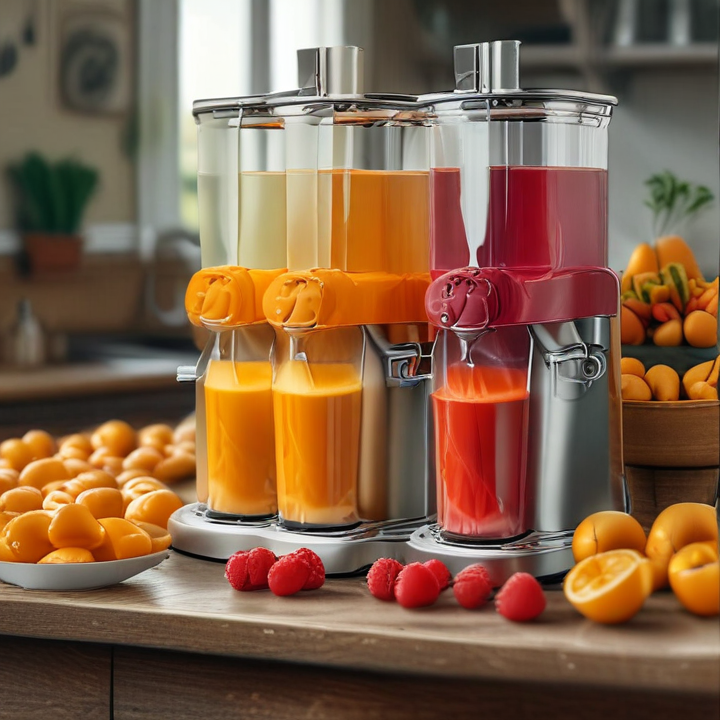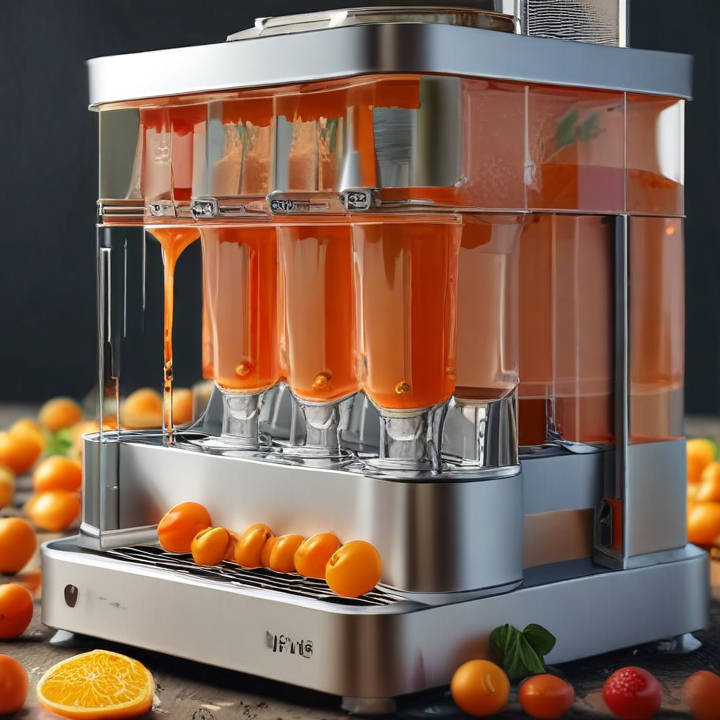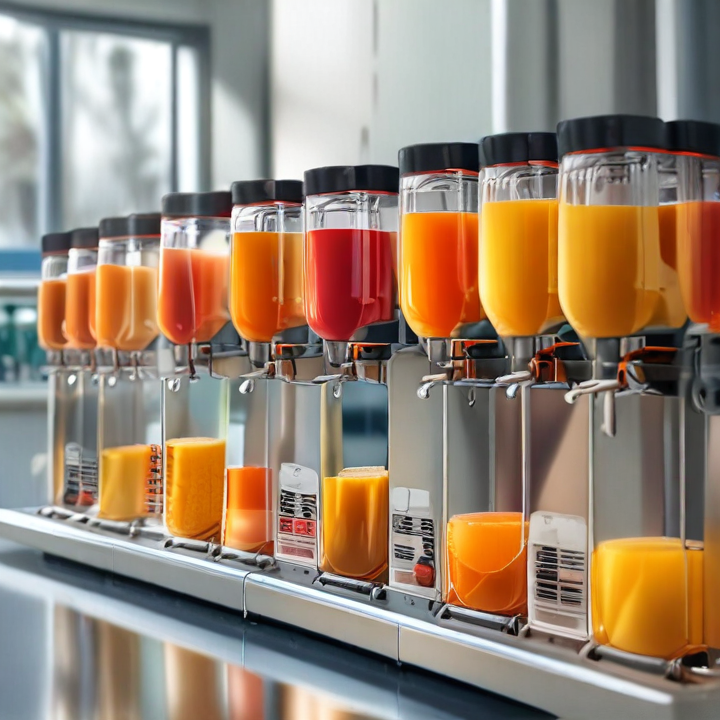fruit juice making machine Safety Certifications
When considering a fruit juice making machine, safety certifications are crucial to ensure the device meets industry standards and regulatory requirements for safe operation. Here are some common and important safety certifications to look for:
1. CE Mark: This certification indicates conformity with health, safety, and environmental protection standards for products sold within the European Economic Area (EEA). It’s a mandatory mark for many products, including fruit juice machines.
2. UL Certification: Underwriters Laboratories (UL) certifies products for safety, ensuring they comply with U.S. standards. A UL mark means the product has been tested and meets stringent safety requirements.
3. ETL Listed Mark: Similar to UL, ETL certification by Intertek signifies that the product meets North American safety standards. ETL Listed Mark ensures compliance with regulatory, performance, and safety standards.
4. NSF Certification: NSF International provides certification focused on food safety and sanitation. An NSF mark on a fruit juice making machine indicates it meets high standards for design and operation in food preparation settings.
5. CSA Certification: The Canadian Standards Association (CSA) marks products that meet Canadian safety standards. For fruit juice machines used in Canada, the CSA mark is an assurance of compliance with national safety codes.
6. RoHS Compliance: The Restriction of Hazardous Substances Directive (RoHS) ensures that the machine is free from specific hazardous materials like lead, mercury, and cadmium, promoting both user safety and environmental protection.
7. ISO 9001: While not a safety certification per se, ISO 9001 certification indicates that the manufacturer adheres to quality management principles and consistent manufacturing standards, indirectly supporting product safety and reliability.
Always check for these certifications in the product documentation or labeling. These marks not only ensure compliance with legal and industry standards but also enhance the reliability and safety of the fruit juice making machine for everyday use.
List Reference Technical Parameters of “fruit juice making machine”
When evaluating a fruit juice making machine, several technical parameters are crucial for ensuring that you select the right model tailored to your specific requirements. Here are the key reference technical parameters:
1. Capacity: This measures how much juice the machine can produce per hour, typically expressed in liters or gallons.
2. Power: Indicates the machine’s energy consumption, usually in watts (W) or kilowatts (kW).
3. Material: The construction material of the machine, often stainless steel for durability, hygiene, and ease of cleaning.
4. Type of Juicer:
– Centrifugal: High-speed blades, better for quick juicing.
– Cold Press/Masticating: Uses a slow auger, preserving more nutrients.
– Twin Gear: Offers the highest nutrient retention, good for leafy greens.
5. Noise Level: Measured in decibels (dB), important for environments where noise may be a concern.
6. Extraction Efficiency: Indicates the percentage of juice extracted from the fruit, affecting yield and waste.
7. Feed Tube Size: Determines the size of fruit and vegetables that can be fed into the machine without pre-cutting, typically measured in inches or millimeters.
8. Speed Settings: Different speeds for handling various types of produce.
9. Pulp Ejection: Whether the machine has automatic pulp ejection to allow continuous juicing.
10. Ease of Cleaning: Whether the parts are detachable and dishwasher safe.
11. Dimensions and Weight: Important for storage and portability, typically measured in centimeters/inches and kilograms/pounds.
12. Safety Features: Includes lock mechanisms, overheat protection, and non-slip feet.
13. Voltage: Depending on the region, usually 110V or 220V.
14. Warranty and Certifications: Indicates reliability and compliance with safety and quality standards.
Understanding these parameters will help you make an informed decision when purchasing a fruit juice making machine, ensuring it fits your needs and operational environment efficiently.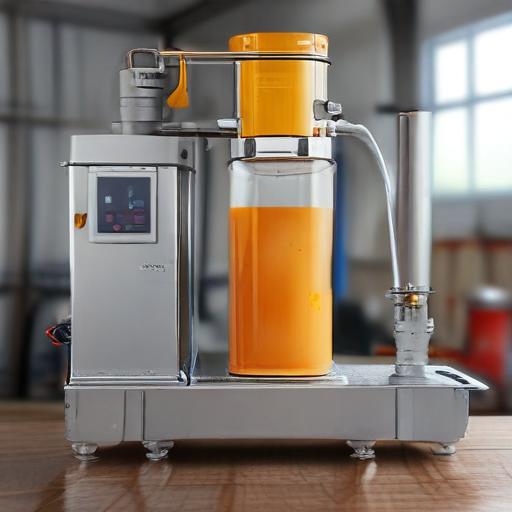
List Product features of “fruit juice making machine”
Sure! Here are the key product features of a fruit juice making machine:
1. High Extraction Efficiency: Maximizes juice yield by extracting the maximum amount of juice from fruits.
2. Multi-Fruit Compatibility: Designed to handle a variety of fruits, including citrus, berries, apples, and more.
3. User-Friendly Interface: Simple controls for ease of use, often featuring one-touch operation.
4. Powerful Motor: Equipped with a robust motor to ensure fast and efficient juicing.
5. Durable Build: Constructed with high-quality materials like stainless steel for longevity and easy cleaning.
6. Safety Features: Built-in safety mechanisms such as automatic shut-off and non-slip feet to prevent accidents.
7. Low Noise Levels: Operates quietly to minimize disruption.
8. Compact Design: Space-saving design that fits easily on kitchen countertops.
9. Easy Maintenance: Removable, dishwasher-safe parts for quick and hassle-free cleaning.
10. Pulp Control: Adjustable settings to control the amount of pulp in your juice.
11. Multiple Speed Settings: Various speed options to cater to different types of fruits and user preferences.
12. Anti-Drip Spout: Designed to prevent spills and messes during juicing.
13. Large Feeding Tube: Accommodates whole fruits, reducing prep time.
14. Nutrient Preservation: Engineered to retain maximum nutrients and enzymes in juices.
15. BPA-Free Components: Made with food-safe materials to ensure healthy, toxin-free juice.
16. Juice Container: Comes with a juice container that has capacity markings and a lid for easy storage.
17. Recipe Booklet: Often includes a recipe guide to inspire creative juicing.
These features collectively make a fruit juice making machine an efficient, convenient, and versatile addition to any kitchen.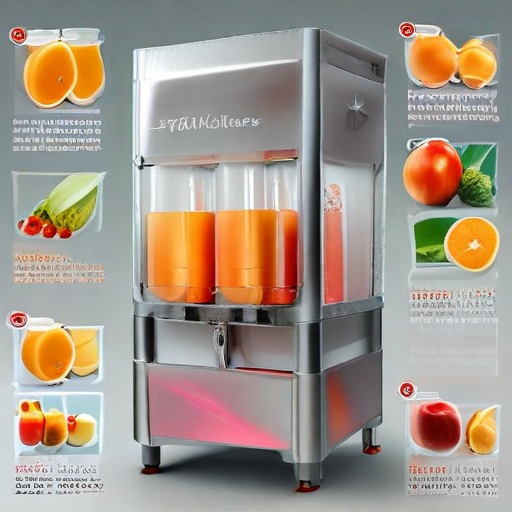
List Various Types of “fruit juice making machine”
Certainly! Here’s a concise list of various types of fruit juice making machines:
1. Centrifugal Juicers
– *Function*: Uses a high-speed spinning blade to chop fruit and extract juice via centrifugal force.
– *Best For*: Hard fruits and vegetables, such as apples and carrots.
2. Masticating Juicers (Cold Press Juicers)
– *Function*: Utilizes an auger to crush fruits and extract juice slowly, preserving nutrients.
– *Best For*: Soft and hard fruits, leafy greens, and vegetables.
3. Twin Gear Juicers (Triturating Juicers)
– *Function*: Employs two interlocking gears to crush and press fruits, delivering high-quality juice.
– *Best For*: All types of fruits and vegetables, including wheatgrass.
4. Citrus Juicers
– *Function*: Specifically designed to extract juice from citrus fruits like oranges, lemons, and grapefruits.
– *Types*: Manual hand press, electric reamer.
5. Manual Juicers
– *Function*: Hand-operated devices that use a plunger or press mechanism to extract juice.
– *Best For*: Soft fruits like oranges and pomegranates.
6. Hydraulic Press Juicers
– *Function*: Uses high pressure to extract maximum juice from fruits and vegetables.
– *Best For*: High-volume juice production, commercial use.
7. Steam Juicers
– *Function*: Uses steam to extract juice from fruits. Juice collects in a separate chamber.
– *Best For*: Juicing fruits like berries for making concentrated juice and preserves.
8. Commercial Juicers
– *Function*: High-capacity juicers designed for continuous use in restaurants or juice bars.
– *Types*: Can be centrifugal, masticating, or hydraulic press.
Each type of fruit juice making machine serves unique purposes and caters to different needs, whether for personal use, health-oriented choices, or commercial ventures.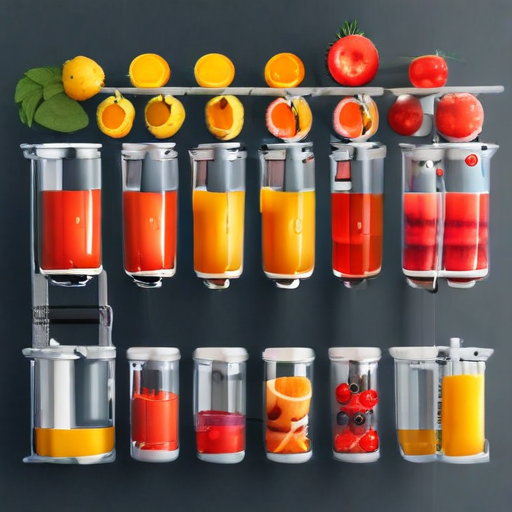
List Application of “fruit juice making machine”
A fruit juice making machine is an invaluable tool in various settings due to its ability to efficiently extract juice from a wide variety of fruits. Here are several key applications:
1. Households: For families and individuals desiring fresh, homemade fruit juices without preservatives and added sugars. It enhances daily nutritional intake and caters to specific taste preferences.
2. Restaurants and Cafés: To offer freshly squeezed juices as part of the menu, enhancing the appeal to health-conscious customers and improving beverage quality over store-bought alternatives.
3. Juice Bars: Central to operations, enabling these specialized establishments to provide a wide array of fresh juice options quickly and efficiently, often blending exotic and seasonal fruits to create unique offerings.
4. Fitness and Wellness Centers: To supply fresh fruit juices known for their high vitamin content and natural sugars, aiding in hydration and providing a nutritious, energy-boosting option for clients before or after workouts.
5. Hotels and Resorts: To enhance guest experiences with freshly made juices as part of breakfast buffets or welcome drinks, demonstrating a commitment to quality and healthful options.
6. Health Clinics and Hospitals: Used to provide patients with nutrient-rich beverages that support recovery and improve overall health, especially for those on restricted or specialized diets.
7. Schools and Colleges: For cafeterias and canteens looking to promote healthier beverage choices among students, substituting soda and other sugary drinks with nutritious, freshly made fruit juices.
8. Farmers Markets: Farmers and vendors can use these machines to offer fresh juice made from their produce, adding value and attracting health-conscious customers.
9. Event Catering: Ideal for providing fresh juice options at events such as weddings, parties, and corporate gatherings, enhancing the catering service with health-friendly beverage choices.
10. Commercial Juice Production: For small-scale juice brands or artisanal producers, these machines allow for the creation of natural, fresh juices without preservatives, tapping into growing consumer demand for authenticity and health.
These diverse applications highlight the versatility and importance of fruit juice making machines in promoting healthier beverage choices across different spheres of daily life and business.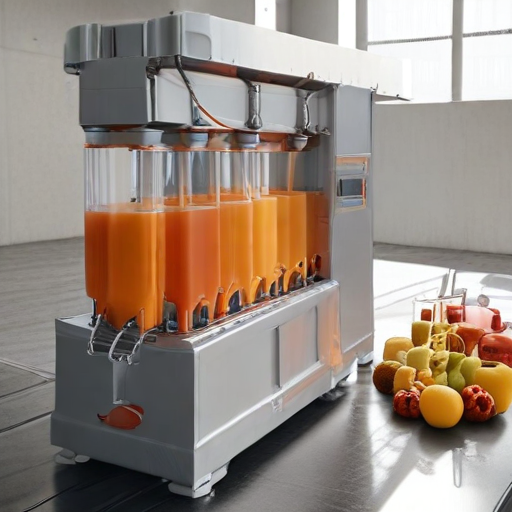
List Buyer Types of “fruit juice making machine”
The buyers of fruit juice making machines can be broadly categorized as follows:
1. Commercial Restaurants and Cafes:
– These businesses often require high-quality, durable fruit juice machines for efficient, bulk juice production. They prioritize speed, ease of cleaning, and consistency in performance to meet customer demands consistently.
2. Juice Bars and Smoothie Shops:
– Specialized outlets that focus primarily on juice and smoothie offerings need reliable, heavy-duty machines capable of producing a high volume of fresh juice. Quality and juice yield are critical factors for these buyers.
3. Hotels and Resorts:
– High-end establishments look for premium fruit juice machines to provide freshly squeezed juice as part of their luxury dining experiences. Durability, the ability to handle diverse types of fruits, and ease of operation are essential features.
4. Groceries and Supermarkets:
– Supermarkets and groceries may use fruit juice machines to offer fresh juice options on-site. These buyers are interested in machines that can juice various fruit types efficiently and are easy to maintain.
5. Health and Fitness Centers:
– Gyms and wellness centers incorporate juice machines to offer health-conscious clientele fresh juice options. They tend to focus on machines that maximize nutrient retention and produce minimally processed juice.
6. Domestic/Personal Use:
– Individual buyers seeking to make fresh fruit juice at home will look for smaller, user-friendly, and affordable machines. Features like easy cleaning, compact size, and versatility in juicing different fruits are priorities.
7. Schools and Institutions:
– Educational institutions looking to promote healthy eating habits among students may invest in fruit juice machines for cafeterias or dining halls. Durability, safety, and capacity for frequent use are key considerations.
8. Farmers and Agricultural Cooperatives:
– Those involved in agriculture might purchase these machines to add value to their fruit produce. They need robust, high-capacity machines for processing large quantities of fruit efficiently.
Each buyer type has unique requirements and considerations, driving the features and functionalities they seek in a fruit juice making machine.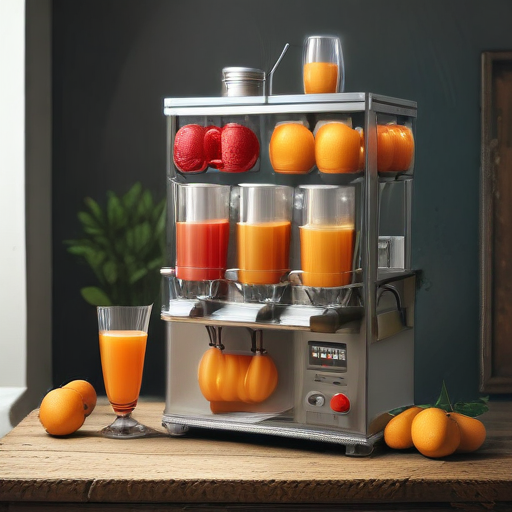
List “fruit juice making machine” Project Types for Different Industries
1. Home Appliance Industry:
– Compact Juicers: Designed for small-scale home use, emphasizing ease of use and cleaning.
– Multi-function Juicers: Combine juicing with other functions like blending and grinding to offer versatility for home kitchens.
2. Commercial Food Service Industry:
– High-Volume Juicers: Built to handle large quantities quickly, suitable for restaurants, cafes, and juice bars.
– Automatic Juicers: Fully automated machines for minimal user intervention, ideal for busy commercial settings.
3. Beverage Manufacturing Industry:
– Industrial Juicers: Heavy-duty machines capable of processing large amounts of fruit continuously, used in factories.
– Cold-Press Juicers: Maintain maximum nutrient retention for premium juice brands.
4. Agriculture and Food Processing Industry:
– Mobile Juicing Units: Portable machines that can be transported to farms for on-site processing.
– Juice Extractors for By-products: Specialized for extracting juice from fruits not suitable for sale, reducing waste.
5. Health and Wellness Industry:
– Nutrient-Preserving Juicers: Focus on retaining vitamins and enzymes for health-conscious consumers.
– Personal Juicers: Designed for individual use, often featuring travel-friendly designs and quick operation.
6. Hospitality Industry:
– Buffet-Style Juicers: Machines designed to be self-service in hotels and buffets, focusing on user-friendly interfaces.
– Luxury Juicers: High-end, aesthetically pleasing models for upscale hotels and resorts.
7. Educational Institutions:
– Teaching Juicers: Demonstrative units for culinary schools, emphasizing clear visibility of the juicing process for educational purposes.
– Research Juicers: Machines used in food science programs for studying different juicing techniques and their effects on nutritional content.
8. Retail Industry:
– In-Store Demonstration Units: Machines designed for use in retail settings to showcase and sell fresh juices on the spot.
– Consumer-Focused Juicers: Affordable and durable machines marketed directly to end-users through retail outlets.
These project types cater to the specific needs and scale of operations within each industry, enhancing efficiency and aligning with market demands.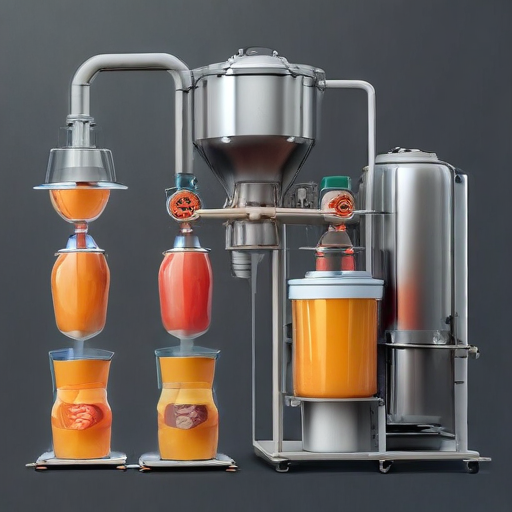
fruit juice making machine Accessories Upgrades and Custom Manufacturing Options
Sure, here are the accessories, upgrade options, and custom manufacturing possibilities for fruit juice making machines:
Accessories
1. Pulp Extractor: Separates pulp from juice for a smoother texture.
2. Juice Collecting Container: Ensures hygienic collection.
3. Filter Screens: Available in various mesh sizes for different pulp levels.
4. Spout Attachments: Multiple spouts for different juice flows.
5. Cleaning Brushes: Specialized brushes for easy maintenance.
6. Noise Dampeners: Reduce operational noise.
Upgrades
1. Advanced Blades: Titanium-coated or ceramic blades for enhanced durability.
2. Stronger Motors: Higher wattage for tougher fruits and vegetables.
3. Digital Controls: Touchscreen interfaces for settings and programs.
4. Self-Cleaning Function: Automated cleaning cycles.
5. Multiple Speed Settings: Different speeds for various types of produce.
6. Auger Improvements: Higher efficiency augers for better juice yield.
Custom Manufacturing Options
1. Personalized Branding: Custom logos and colors to match brand aesthetics.
2. Material Choices: Stainless steel, BPA-free plastics, or eco-friendly materials.
3. Size Customization: Tailored dimensions to fit specific counter spaces or industrial setups.
4. Capacity Adjustments: Variable juicing capacities according to consumer or commercial needs.
5. User Interface: Customized digital interfaces with specific control panels.
6. Safety Features: Enhanced safety mechanisms like automatic shut-off and overload protection.
Opting for these accessories, upgrades, and custom manufacturing options can significantly improve efficiency, user experience, and product appeal, making your fruit juice making machine more versatile and market-competitive.
List Quality Control and The Manufacturing Process of “fruit juice making machine”
Quality Control
1. Material Inspection: Ensure raw materials meet safety and quality standards. Verify stainless steel for corrosion resistance and non-reactivity.
2. Component Testing: Check motors, blades, and electrical components for functionality and safety.
3. Dimensional Accuracy: Utilize precision instruments to verify that machine parts conform to design specifications.
4. Assembly Verification: Inspect assembly processes for alignment, fastening integrity, and proper fit.
5. Performance Testing: Run test batches to check efficiency, juice yield, and operational smoothness.
6. Safety Checks: Conduct thorough inspections for sharp edges, pinch points, and proper safety features like emergency stop buttons.
7. Sanitation Verification: Ensure machine parts in contact with juice are easily cleanable and comply with food safety standards.
8. Final Inspection: Perform a comprehensive review before packaging, including functionality, safety, and cleanliness.
Manufacturing Process
1. Design and Engineering: Develop CAD designs, specify materials and components, and create engineering drawings.
2. Material Procurement: Source stainless steel, motors, electronic parts, and other necessary materials from verified suppliers.
3. Cutting and Shaping: Use CNC machines, laser cutters, or traditional methods to cut and shape metal parts.
4. Machining: Drill, mill, and lathe operations to achieve precise dimensions and forms.
5. Assembly: Fit, align, and fasten components such as motor housing, blades, and electrical boards according to design specifications.
6. Welding: Perform TIG or MIG welding for structural strength and durability where required.
7. Electrical Wiring: Install wiring, control panels, and sensors to ensure the machine operates correctly.
8. Surface Treatment: Apply polishing, painting, or anti-corrosion coatings to enhance durability and aesthetics.
9. Performance Testing: Conduct initial tests on assembled machines to assess juice extraction efficiency and operational reliability.
10. Sanitation and Final Checks: Ensure all machine parts are sanitized and align with food safety regulations before final inspection.
11. Packaging: Securely pack machines for transport, adding necessary documentation and user manuals.
This concise summary highlights the key steps in both quality control and the manufacturing process of a fruit juice making machine, ensuring product safety, functionality, and reliability.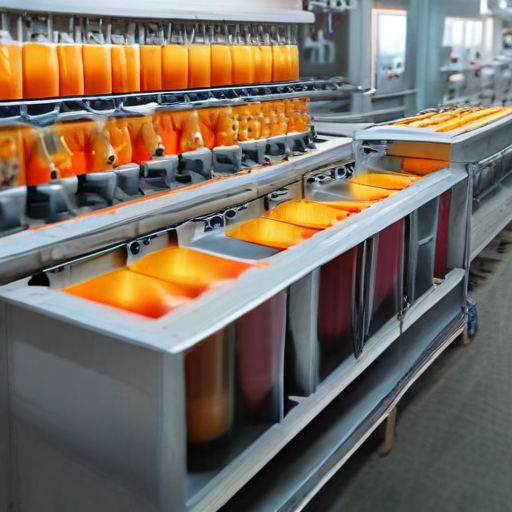
How to use “fruit juice making machine”
Using a fruit juice making machine is straightforward and efficient. Here are the steps to guide you through the process:
Step-by-Step Instructions:
1. Preparation:
– Select Your Fruits: Choose fresh, ripe fruits for the best juice. Common choices include oranges, apples, carrots, and berries.
– Wash the Fruits: Thoroughly rinse the fruits to remove any dirt, pesticides, or contaminants.
2. Cutting the Fruits:
– Peel and Chop: Depending on the type of fruit and the machine’s requirements, you may need to peel and chop the fruits into smaller pieces. Remove seeds if necessary.
3. Setting Up the Machine:
– Assemble the Machine: Ensure all parts of the juice maker are properly assembled according to the manufacturer’s instructions.
– Power On: Plug in the machine and turn it on.
4. Juicing Process:
– Feed the Fruits: Gradually feed the chopped fruits into the juicer’s chute. Use the pusher to guide them if your machine includes one.
– Collect the Juice: Place a glass or container under the spout to collect the freshly extracted juice.
5. Post-Juicing:
– Turn Off the Machine: Once all fruits are juiced, turn off and unplug the machine.
– Disassemble and Clean: Disassemble the parts and wash them thoroughly to ensure no pulp or residue is left. Dry all parts before reassembling or storing.
Tips:
– Mix Fruits: Experiment with mixing different fruits for unique flavors.
– Monitor Capacity: Don’t overload the machine; follow the manufacturer’s guidelines for quantities.
– Filter Options: Some machines come with sieves or filters to adjust the pulp level in your juice.

“fruit juice making machine” Comparative Analysis
When comparing fruit juice machines, several factors come into play: type (centrifugal vs. masticating vs. citrus), efficiency, ease of use, cleaning, and cost. Here’s a brief comparative analysis of some popular options:
1. Centrifugal Juicers:
– Types: Fast-spinning blades extract juice quickly.
– Efficiency: Good for hard fruits/vegetables, but lower juice yield for leafy greens.
– Ease of Use: Simple assembly and usage.
– Cleaning: Generally have multiple parts; cleaning can be cumbersome.
– Cost: Affordable ($50-$150), making them accessible for beginners.
2. Masticating Juicers:
– Types: Slow grinding action mimics chewing, extracting more juice.
– Efficiency: High yield, particularly efficient with leafy greens and soft fruits.
– Ease of Use: More parts can mean a steeper learning curve.
– Cleaning: Easier to clean than centrifugal due to fewer components.
– Cost: Higher ($100-$500), but justifiable for those seeking higher juice quality and yield.
3. Citrus Juicers:
– Types: Specifically designed for citrus fruits with reamers.
– Efficiency: Optimal for citrus but useless for other fruits.
– Ease of Use: Extremely easy to use and intuitive.
– Cleaning: Simplistic design allows for straightforward cleaning.
– Cost: Very affordable ($20-$100), ideal for dedicated citrus juice lovers.
4. Twin Gear (Triturating) Juicers:
– Types: Use two gears to crush and grind produce.
– Efficiency: Highest yield and nutrient retention, suitable for a wide range of produce.
– Ease of Use: More complex to assemble and operate.
– Cleaning: Time-consuming due to intricate parts.
– Cost: Premium range ($300-$1000), suited for dedicated juicing enthusiasts and professionals.
Conclusion: Your choice depends on specific needs. For occasional use or beginners, a centrifugal juicer is practical. Health-conscious users or those juicing leafy greens might prefer a masticating or twin gear juicer. Citrus lovers will benefit from dedicated citrus juicers. Balancing cost, ease, and efficiency will guide the ideal purchase.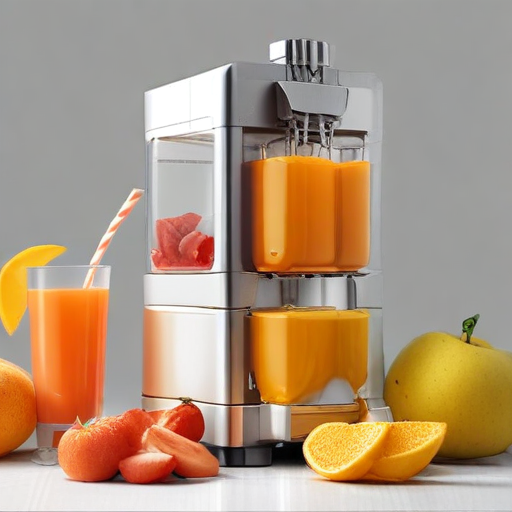
“fruit juice making machine” Warranty and Support
Warranty and Support for Fruit Juice Making Machine
#### Warranty
Our fruit juice making machine comes with a comprehensive 2-year warranty, ensuring your investment is protected. The warranty covers:
– Manufacturing Defects: Any flaws or defects in materials and workmanship.
– Parts Replacement: Free replacement of defective parts within the warranty period.
– Labor Costs: Repairs conducted by our authorized service centers including labor costs.
Please note, the warranty does not cover damage caused by:
– Improper use or maintenance
– Commercial use (for models intended for home use)
– Natural wear and tear
#### Support
We provide robust support to ensure a seamless experience with your fruit juice making machine:
– Customer Service: Our dedicated support team is available 24/7 via phone, email, and live chat to assist with any inquiries or issues.
– User Manual: A detailed manual is included, featuring setup instructions, operating guidelines, and troubleshooting tips.
– Online Resources: Access a comprehensive library of tutorials, FAQs, and video guides on our website.
– Technical Support: Certified technicians are available for more complex issues, either via remote assistance or onsite visits.
– Service Centers: Locate nearby authorized service centers through our website for in-person troubleshooting and repairs.
– Extended Warranty: Option to extend your warranty for an additional fee, ensuring long-term peace of mind.
#### How to Claim Warranty or Support
1. Contact Us: Reach out to our customer service team with your purchase details and a description of the issue.
2. Assessment: Our team will assess your problem and guide you on the next steps.
3. Service: Depending on the issue, we’ll arrange for either parts shipment, technician visits, or mailing instructions for returning the product.
With our robust warranty and extensive support options, we aim to provide you with a worry-free experience, allowing you to enjoy fresh, homemade fruit juice effortlessly.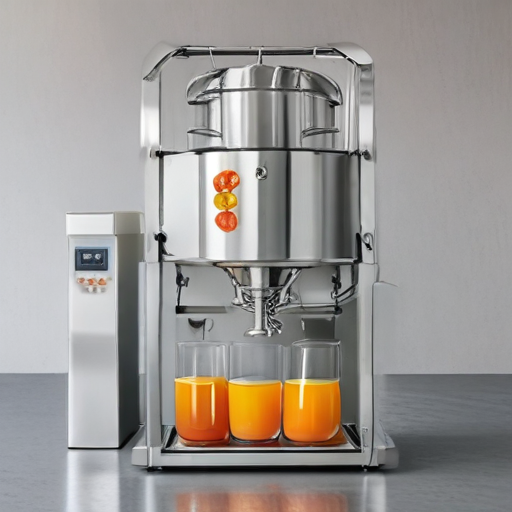
List “fruit juice making machine” FAQ
Fruit Juice Making Machine FAQ
1. What types of fruits can I use?
Most fruit juice machines handle a variety of fruits, including but not limited to apples, oranges, berries, and more. Consult your machine’s manual for specifics.
2. How do I clean the machine?
Disassemble all washable parts and clean with warm, soapy water. Some parts may be dishwasher-safe. Regular cleaning prevents residue buildup and ensures hygiene.
3. Can I juice vegetables too?
Many machines are versatile and can juice both fruits and vegetables. However, hard vegetables like carrots may require a more powerful motor.
4. Is it safe to put the machine in the dishwasher?
Check the manufacturer’s guidelines. While some components may be dishwasher-safe, others might need hand-washing.
5. How often should I replace the filter or blades?
Frequency depends on usage and the quality of the components. Inspect regularly and refer to the manual for recommended replacement intervals.
6. What do I do if the machine jams?
Turn off and unplug the machine immediately. Disassemble and clear any blockages. Hard fruits or large chunks may cause jams, so cut produce into manageable sizes.
7. How noisy is the machine?
Noise levels vary by model and motor power. Generally, more powerful machines are noisier. Noise ratings or reviews can provide more information.
8. Is pre-cutting necessary?
Pre-cutting is usually recommended to avoid overloading the machine and to achieve better juice extraction.
9. Can I juice citrus fruits without peeling?
Some juicers are designed for whole citrus fruits, while others require peeling. Always check the user manual.
10. What is the warranty period?
Warranty periods differ by brand and model. They can range from 1 to 5 years. Check the warranty details upon purchase for specifics.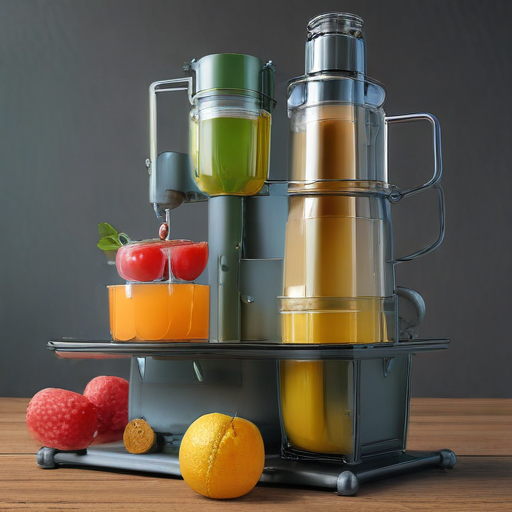
Top 10 FAQ with answer about fruit juice making machine for Buyer Sourcing from China
1. What are the key features to look for in a fruit juice making machine?
– Essential features include a powerful motor, stainless steel construction for durability, ease of cleaning, safety certifications, capacity, type of juicer (centrifugal, masticating, or citrus), and user-friendly controls.
2. Is the machine suitable for different types of fruits?
– Most machines can handle various fruits, but it’s important to verify if it can process hard, soft, and citrus fruits efficiently to meet your production needs.
3. What is the average lead time for orders?
– Lead times typically range from 30 to 60 days but can vary based on the supplier’s schedule and order quantity. Always confirm with the manufacturer for specific timelines.
4. Are there minimum order quantities (MOQs) when sourcing from China?
– MOQs can vary significantly between manufacturers. Some may require orders of 50 units, while others may have higher or lower minimums. Always directly inquire with potential suppliers.
5. Can the machine voltage be customized for my country?
– Yes, most manufacturers offer customization for different voltage requirements (110V, 220V, etc.). Ensure you specify this when placing your order to avoid compatibility issues.
6. What certifications should the machine have?
– Look for certifications like CE, ISO, and possibly FDA if you’re importing into the US, to ensure the machine meets safety and quality standards.
7. Do manufacturers offer a warranty and technical support?
– Reputable manufacturers typically offer a 1-2 year warranty and should provide technical support. Always confirm the specifics of after-sales service before purchasing.
8. How can I ensure the quality of the machine before purchasing?
– Request detailed specifications, pictures, and videos of the machine in operation. If possible, plan a factory visit or hire a third-party inspection service to verify quality.
9. What are the shipping costs and logistics involved?
– Shipping costs vary based on the size and weight of the machine, shipping method (air or sea), and your location. It’s useful to get quotes from freight forwarders and discuss Incoterms (e.g., FOB, CIF) with the supplier.
10. Are there additional costs (e.g., customs duties, installation)?
– Check for potential additional costs such as customs duties, taxes, and installation fees. It’s prudent to calculate all potential expenses to avoid unexpected charges.
By addressing these FAQs, buyers can make more informed decisions when sourcing fruit juice making machines from China.


